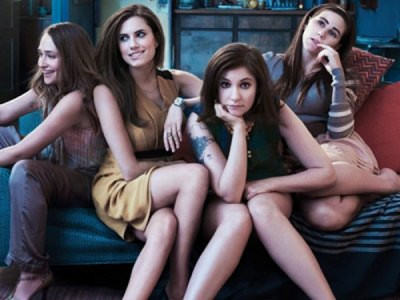40 Years After Roe V. Wade, Depictions Of Abortion Are Still Taboo On Television

Tuesday marks the 40th anniversary of the Supreme Court’s landmark Roe v. Wade decision, and yet depictions of unwanted pregnancy and abortion in films and on television are as polarizing today as they ever were.
That’s hardly a surprise in light of public opinion on the issue: A recent poll by the Pew Forum on Religion and Public Life shows that 54 percent of Americans think abortion should be legal in all or most cases, compared to 39 percent who think it should be illegal. Those percentages have remained relatively constant since the mid-1990s, and Americans’ unwavering opinions on the topic are reflected in the indirect manner in which movies and TV shows often frame the abortion issue.
“Film and television is really critical in terms of influencing opinions on social and political issues,” Carrie Nelson, a writer and co-founder of feminist collective Gender Across Borders, said. “You look at a show like ‘Will and Grace' and how it really advanced the portrayal of gays and lesbians. In the same way, producers have the opportunity to shape the abortion debate with movies and shows that create a productive dialogue about the social and legislative issues that affect abortion.”
The Norman Lear-created sitcom “Maude” was the first television show to tackle the controversial topic of abortion head on. The title character, played by Bea Arthur, had an abortion on the show in 1972, two months before the Roe v. Wade ruling. Following the ruling -- and amid increasingly inflamed tempers -- CBS reran the two-part episode in August 1973, provoking widespread criticism and calls for national boycotts from pro-life groups that said the network was promoting abortion.
And apparently not much has changed since then. Earlier this month, after NBC’s drama “Parenthood” featured a teenage character (played by Skyler Day) deciding to terminate her pregnancy, the backlash was swift and vocal among conservative media watchdogs who likened it to an advertisement for Planned Parenthood.
“We get another pro-abortion piece where even the young father, who wants to keep the baby, never refers to the child as anything other than ‘it,’” Dan Gainor, of the Culture and Media Institute, told the Hollywood Reporter.
Nelson, meanwhile, hasn’t seen the “Parenthood” episode in question, but she said criticism surrounding the episode mirrors a similar outcry in 2010, when a storyline on NBC’s “Friday Night Lights” featured a teenage character who has an abortion. “A lot of anti-abortion critics see any depiction of abortion as an endorsement of it,” she said.
To be certain, mainstream movies and TV shows have depicted a handful of fictional abortions in between “Maude” and “Parenthood.” Jennifer Jason Leigh’s character famously sneaked off to an abortion clinic in “Fast Times at Ridgemont High” (1982), as did Angela Deisach’s character in “Degrassi High” (1989).
But despite Gainor’s description of “Parenthood” as “another pro-abortion piece,” such depictions are notable exceptions. In fact, storylines involving unwanted pregnancies overwhelmingly play out with the character making the choice to have the baby, and this has been a particularly common theme in the last 10 years. (Case in point: Judd Apatow’s “Knocked Up,” Adrienne Shelly’s “Waitress” and Jason Reitman’s “Juno.”)
In an email, Gainor said the liberal message of such storylines is the same, even if the character never goes through with the abortion. “Ultimately, it’s not just frequency, it's agenda,” he said. “In ‘Parenthood,’ the pro-life voice who was the prospective dad, even he never talked about life, God or a child -- the natural reactions to any pregnancy. Hollywood has no interest in honestly portraying anything conservative -- faith, family, and especially life.”
On television, one of the most common unwanted-pregnancy plotlines involves a character deciding to terminate a pregnancy only to back out in the end, usually after a trip to the abortion clinic. “Beverly Hills: 90210,” “Melrose Place,” “Sex and the City,” “Desperate Housewives” and “Mad Men” are a few of the shows that have utilized this plot device. On the first season of HBO’s “Girls” -- one of the edgiest shows on TV these days -- Jemima Kirke’s character makes an appointment to have an abortion only to later discover that she is not pregnant, a familiar TV trope.
So why the perpetual reluctance to tackle the abortion issue directly? Nelson says it speaks to the challenges of depicting a stubbornly polarizing topic that is not as black and white as it is often made out to be.
“It’s not as simple as being pro-choice or pro-life,” she said. “When you look at the percentage of people who support Roe v. Wade, you see it gets a lot more blurry when you’re talking about late-term abortions or whether teenagers should be allowed to get an abortion without parental consent. I think it’s challenging for mainstream TV creators to capture all of those nuances.”
© Copyright IBTimes 2024. All rights reserved.






















